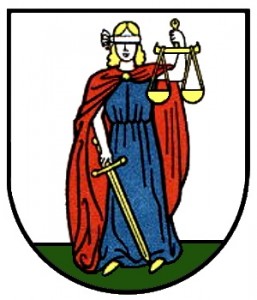MARY MAGDALENE: Going Beyond Right-Wrong Conditioning with Children
Received by Mercedes Kirkel
On July 9, 2014
Question: In Mary Magdalene Beckons, Mary points out how we learn to blame others and that most of us learned we could receive love from our parents if we were “right,” but we would be denied love when we were “wrong.” As a parent of a young child, I would like to know if Mary has any tips for guiding one’s child and helping them learn how to listen, be respectful, make safe choices, be honest, etc. without conditioning them with “right vs. wrong.”
Mary Magdalene: Hello my dear one. Thank you for asking this question. I believe it is a most important one, which will benefit many.
Your question goes right to the heart of what underlies the third-dimensional consciousness. In the third dimension, there are a few primary assumptions or beliefs that support, and actually create, your reality. The third dimension has been described as a place of duality, where things tend to be viewed in terms of opposites. One of the most fundamental forms that duality takes in the third dimension is in the form of a moralistic judgment, which is often communicated as “good vs. bad,” “right vs. wrong,” “good vs. evil or sin,” etc. As with many things, there is a seed of truth in these ideas or ways of seeing reality. The truth that’s contained in it is that human beings are in a process of spiritual evolution in which they are growing and transforming so as to become more and more unified with God. It could be said that anything which brings you closer to God is “good” or “right” and anything which separates you from God is “bad” or “wrong.”
But you may notice those words, especially in their negative form of “bad,” “wrong,” evil,” or “sin,” carry a charge for most people. It is a charge that signifies that you are bad, wrong, evil, or sinful. It is the charge of shame, that there is something the matter with you, as opposed to simply viewing an action as something that separated you from God. And along with this shame, there also tends to be a sense that you may be punished, even if the punishment is simply being excluded or shunned (which actually is not simple or minor at all).
Most of this sense of shame and fear of punishment stems from childhood, where children were rewarded with love and affection if they did what their parents or caregivers wanted, along with being told at those times that they were good or were doing the right thing. At other times, children were punished for not doing what the parents wanted, and simultaneously told that they were bad or had done something wrong. This kind of training teaches individuals, from an extremely young and impressionable age, that doing what their parents (or caregivers) want is good or right and will bring them love, while doing what their caregivers don’t want is bad or wrong and will bring them punishment and exclusion from love.
There are several results from this. One is that you are teaching a child to submit to authority as a way of being loved. In so doing, you are setting the child up for a lifetime of focusing on pleasing others, rather than being connected to themselves and their own internal guidance. This is a great disservice to individual’s spiritual growth, as inner guidance is essential for spiritual development. It also creates societies where people are easily manipulated and disempowered, because they have been trained to give their power away to others, even to follow others rather blindly, in order to get their needs met.
Some parents have realized the problems in this system of raising children to be obedient and have chosen another path of letting the children make their own choices without parental influence. This is also a disadvantage to the child, because children need the help and guidance of adults to grow up strong, whole, and sensitive to themselves and others.
There is another way. To do this, a parent must become aware of a few things. The first is that you must release any clinging you have to the concepts of right vs. wrong and good vs. bad. You must realize that there is no such thing as absolute right or wrong, absolute good or bad. You may have been taught as a child that absolute or extrinsic good/bad and right/wrong existed, but it was simply a method your parents used to train you, very likely based in the training that they received. This training of right/wrong or good/bad was probably reinforced by religion, schooling, the legal system, the business world, and most of the structures in your world, which all have a vested interest in getting others to do what they want.
So you, as an adult and parent, must first give up the belief that things are good or bad, right or wrong, and that someone, or some group of people, really do know what is good/bad or right/wrong. In fact, those are just opinions, though they might be held by many people. There is no extrinsic good/bad or right/wrong. Those concepts are simply utilized to try to persuade others to do what someone wants.
Does giving up these concepts mean that people are free to do whatever they want? Yes, it does. In fact, people have always been free to do whatever they wanted, but most people have not realized this. They have been convinced to do what others want out of fear of being wrong or bad, and thus losing the love of others, as well as potentially having other punishments imposed.
However, being free to do whatever you want is not the same thing as saying there are no consequences to what you do. In fact, there are always consequences to whatever you do. There are consequences for yourself and often there are consequences for others. You live in an interdependent world, where most of what you do affects others.
When individuals stop being motivated on the basis of good/bad or right/wrong, they then have the possibility of being motivated by the reality of what the consequences of their actions are. This is true of adults, as well as children. If you are a parent, you can guide your child by helping them understand the consequences of their actions. And the best way to do this is without adding any blame or shame to your communications to the child.
Thus, if a young child says something that’s not true, instead of telling them that’s wrong or bad to “tell a lie,” begin by telling them your feelings. In this example, you might say that you feel disturbed. Follow that up with why you feel disturbed—perhaps because you want to trust the child. The “why” behind your feelings will always point to one of your inner divine quality that’s not fulfilled by what the child said or did. In this case, it’s the inner divine quality of trust.
Essentially, you’re teaching the child about the beautiful inner divine qualities that live inside of him or her. You’re doing this by helping them understand your own inner divine qualities, how precious they are to you, and how they’re affected by the actions of others. In this example, you’re valuing your own inner divine qualities of honesty and trust, and sharing your love of honesty and trust with your child.
In order to avoid having the child end up feeling some sense of shame, you must take it a step further. You must find out why the child chose to say what they said. Every action is always motivated by one or more of our inner divine qualities. What beautiful quality was the child trying to fulfill through this action? Were they wanting love? Emotional safety? Inclusion? Fun? Exploration? You must find out. Usually with a child, you must make a guess and then ask them if that’s right. You will know when you find the real motivation, the actual inner divine quality that was motivating the child, because the child’s light will grow brighter. And your heart will open to the child.
When you find out the inner divine quality that was motivating the child, affirm that that quality is a beautiful thing, something that you value, too. This will remove any sense of shame from the child’s choice. Then go on to help the child understand that the action they chose to fulfill that quality (perhaps telling an untruth to fulfill their inner divine quality of receiving love) wasn’t the best choice because there were other inner divine qualities it didn’t fulfill (your inner divine qualities of honesty and trust). Show them how they could have made other choices to fulfill their desire for love, such as asking for physical affection or attention.
Of course you won’t use the words “inner divine quality” with children, because that would be too abstract for them. You will put it in simple words, such as “Were you wanting love and attention?” or “That way of getting love was disturbing for me because I value honesty and being able to trust you.” Then you can end with suggestions for the future, such as “Next time, maybe you could whisper in my ear that you’re needing some love. How does that sound?”
In doing this, you’re raising children to be connected to themselves and their inner divinity, as well as others and the divinity of others. It is a great gift to children to receive this training at a young age. You will help them to become both loving and strong.
I hope this has been helpful to you. I value your caring for your child and your desire to raise him in the best way possible. It is a great gift to the whole earth to do so.
With fullest heart blessings,
I AM Mary Magdalene
If you would like to receive more messages like this,
Click here and sign up for the
Into The Heart Newsletter.
Support the publication of the next book of messages from Mary Magdalene:
SUBLIME UNION:
A Woman’s Sexual Odyssey Guided by Mary Magdalene,
Click here and go to www.sublime-union.com.
***********************************
©2014 Mercedes Kirkel, http://www.mercedeskirkel.com, All Rights Reserved. Permission is given to share this message as long as the message is posted in its entirety, nothing has been changed or altered in any way, and Mercedes Kirkel’s credit, copyright, and websites are included: http://www.mercedeskirkel.com and http://www.marymagdalenebeckons.com.
Mercedes Kirkel is a multi-award-winning author and spiritual channel, bringing forth messages and instruction from Mary Magdalene and other Beings of Light. Her book, Mary Magdalene Beckons: Join the River of Love is available at www.marymagdalenebeckons.com. Mercedes’s forthcoming book, Sublime Union: A Woman’s Sexual Odyssey Guided by Mary Magdalene, will be available in July, 2014. You can learn about Sublime Union at www.sublime-union.com. All messages and practices are universal and are not affiliated with any religion.
To receive ongoing messages from Mary Magdalene and other Beings of Light through Mercedes, go to www.mercedeskirkel.com and request to be added to the mailing list.
Mercedes offers workshops and private sessions in Santa Fe, New Mexico, including Heart-Source life-and-relationships coaching, guidance from Mary Magdalene and other beings of light, Akashic healing and soul-path guidance, Light-Filled Intimacy™ instruction, and spiritual instruction and support. She is available in-person or long distance (by phone and Skype), or to travel to your location. For more information, go to www.mercedeskirkel.com.



Comments
MARY MAGDALENE: Going Beyond Right-Wrong Conditioning with Children — No Comments
HTML tags allowed in your comment: <a href="" title=""> <abbr title=""> <acronym title=""> <b> <blockquote cite=""> <cite> <code> <del datetime=""> <em> <i> <q cite=""> <s> <strike> <strong>